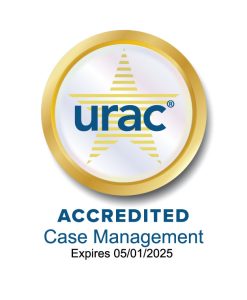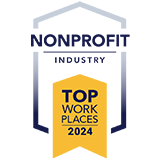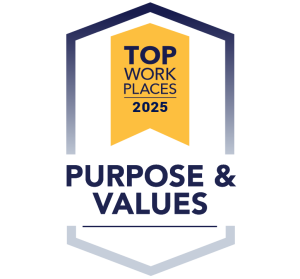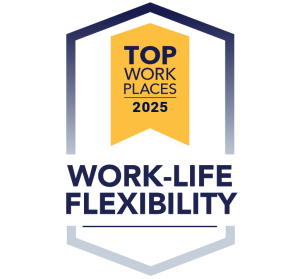May Is Mental Health Month!
By: Renée Dain, SVP, Strategic Partnerships & External Affairs
Since 1949, Mental Health America (MHA), its affiliates, and countless others have observed May as Mental Health Month by reaching out to millions of people to spread the word that mental health is something everyone should care about. MHA’s 2023 Mental Health Month Campaign Look Around, Look Within, is focused on how surroundings impact mental health.
Where a person is born, lives, learns, works, plays, and gathers, as well as their economic stability and social connections, are part of what is called “social determinants of health” (SDOH). The more these factors work in your favor means you are more likely to have better mental well-being. However, when it seems like the world is working against you, your mental health can suffer.
For many people, not having a true “home base” to consistently return to can leave them feeling distressed, disconnected, or isolated. Stable housing allows individuals to develop routines and connections to their local community, which are beneficial for mental health. Having safe, stable, and healthy home conditions set the foundation for achieving and maintaining good mental health.
Here at The Coordinating Center, we work with individuals and families to address SDOH, by connecting them to services and supports, such as affordable and accessible housing, food, employment, school, medical care and behavioral health services. Our Program Director, Community First Programs, Megan Bazzett, MS, CPRP, CFRP has over 23 years of experience working in behavioral health settings. We recently sat down with her to learn more about home and community-based services and the steps we can take to change their surroundings in favor of their well-being, and suggestions for how to cope if change isn’t realistic.
 What are Home and Community-Based Services Programs/Waivers and who is eligible for services?
What are Home and Community-Based Services Programs/Waivers and who is eligible for services?
Home and Community-Based Services (HCBS) are offered through Maryland Medicaid to older adults, individuals with disabilities, and children with chronic illnesses. In addition, waiver programs exist with different eligibility requirements to allow for expanded financial coverage.
HCBS programs offer support to qualifying individuals that support the desire to live at home or in an assisted living facility. Services are combined in a variety of ways to meet the unique needs of each participant, and target such areas as personal care, safety and mobility within the home, nutrition/dietary needs, management of benefits, and connection to resources.
What percentage of the people enrolled in HCBS have a mental health or behavioral health need and how does your team support them?
This is almost certainly a fluid number, as there are individuals whose behavioral health needs have not been formally identified. Some individuals face mental health challenges across multiple life stages, while others experience symptoms that manifest concurrent to a significant change. As an employer, The Coordinating Center supports the overall wellness of its team members in many ways. In turn, coworkers at The Center demonstrate this type of support for the clients we serve, as well as for one another. Our team offers linkage to mental health resources such as peer support, therapy, medication management, and crisis services to name a few.
What are the biggest gaps in care for this population?
The work force shortage of Direct Service Professionals (DSP’s) is a significant contributor to gaps in care. Based on estimates from The Centers for Medicare & Medicaid Services, the shortage is expected to continue through 2030 with an increasing demand that is not being matched by a workforce that remains stable in numbers. Longer wait times to begin services and higher rates of staff turnover are just two of the potentially negative impacts on the quality of care.
What are the top four services that Supports Planners help individuals locate and access?
Supports Planners most often assist individuals with accessing Personal Care Attendant Services, Home Modifications, Home Delivered Meals, and Medical Assistance Coverage/Maintenance.
What are some steps people can take to support themselves or a loved one with a mental health or behavioral health need.
Mental Health America recently put together a mental health challenge. MHA suggests we take a moment to consider our surroundings and ask ourselves the following questions: Do I feel safe? Do I have access to health care and grocery stores? Does my home support me, both physically and mentally? This Mental Health Month, challenge yourself to look at your world and how different factors can affect your mental health. While many parts of your environment can be out of your control, there are steps you can take to change your space and protect your well-being. MHA suggests the following:
- Work toward securing safe and stable housing: This can be challenging due to finances, age, and other reasons, but there are a few things you can try, such as reaching out to state/local agencies to secure housing, removing safety hazards in the home, or finding another space (such as a community center or friend’s home) where you can get the comfort you are missing at home.
- Focus on your home: Consider keeping your space tidy, sleep-friendly, and well-ventilated. Surround yourself with items that help you feel calm and positive.
- Create bonds with your neighborhood and community: Get to know the people living around you, join or start neighbors helping neighbors’ groups, and support local businesses to challenge gentrification.
- Connect with nature: Hike in a forest, sit in a city park, bring a plant inside, or keep the shades open to absorb natural light.
If you’re taking steps to improve your surroundings but are still struggling with your mental health, you may be experiencing signs of a mental health condition. Take a free, private screening at mhascreening.org to help you figure out what is going on and determine next steps. Go to mhanational.org/may to learn more.
Can you tell us a little bit about yourself and your position at The Coordinating Center?
As Director, Community First Programs I provide oversight of The Center’s supports planning services for more than 3,000 Marylanders statewide, enrolled in one of Maryland Medicaid’s Home and Community-Based Services Programs (HCBS).
Prior to The Coordinating Center, I served as Chief of Operations for a multi-jurisdiction community-based mental health provider offering comprehensive services to individuals across the lifespan. I have 23 years of experience in behavioral healthcare and program management and have held leadership roles through two nonprofit behavioral health organizations, serving as the Director, Community Outreach Programs and the Director, Psychiatric Rehabilitation Programs. I received my master’s degree in psychology from Walden University and certifications granted by the Psychiatric Rehabilitation Association (PRA), formerly USPRA: Child and Family Resiliency Practitioner (CFRP,) and Certified Psychiatric Rehabilitation Practitioner (CPRP).







